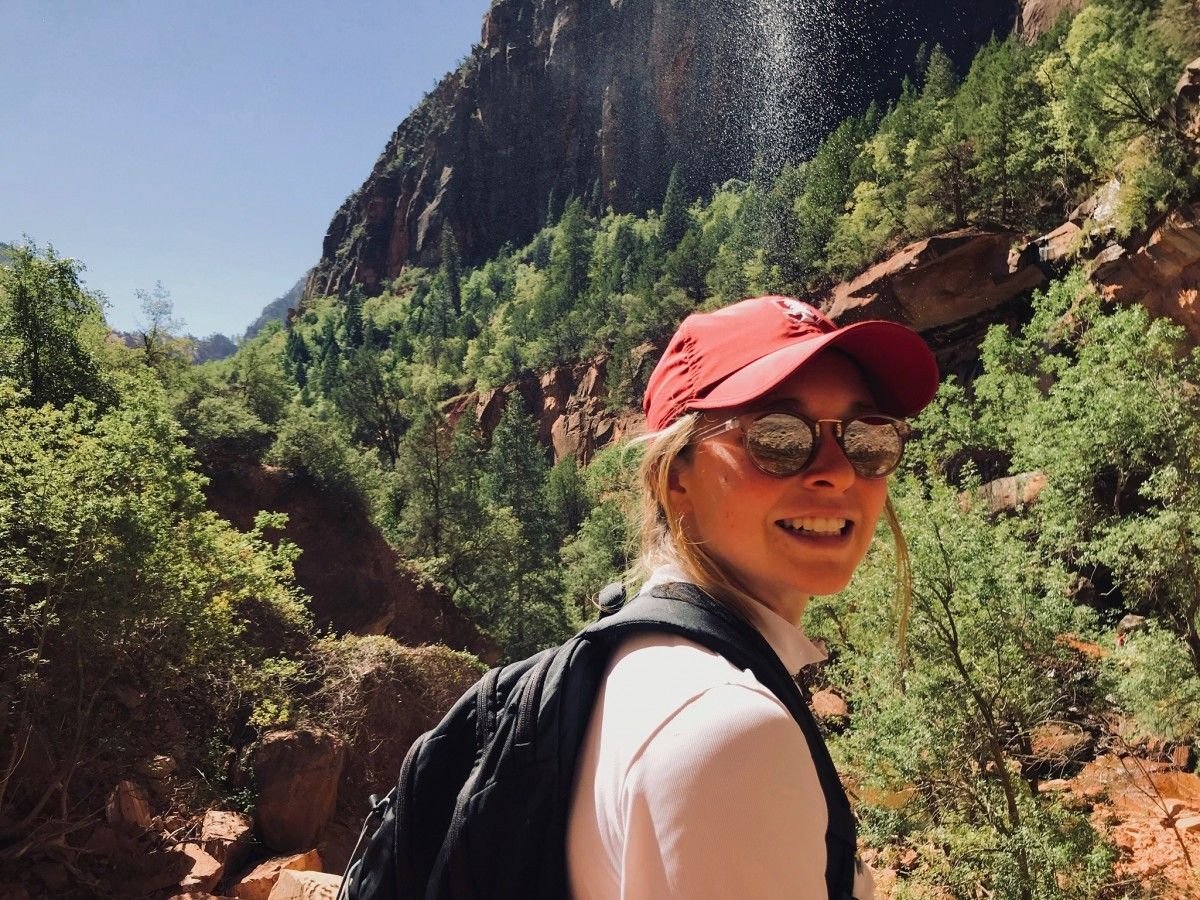Student Profile: Sophia Boyd-Fliegel

Varsity athlete explores Stanford's BLC
Stanford rower Sophia Boyd-Fliegel finds an academic community at the Bill Lane Center for the American West.
By Alex Kekauoha
Sophia Boyd-Fliegel enrolled at Stanford in the fall of 2017 after being recruited by the university’s varsity rowing team. Although she had an established athletic community to join when she arrived on campus, when it came to academics, she was unsure where she would land.
“I wanted a really fun and fast rowing team and a school where I could explore academically,” she said. “Stanford was my dream because no matter what path I chose, I knew it would be excellent.”
One way that students like Boyd-Fliegel can explore their interests is through the various opportunities offered by Stanford’s many centers and institutions. Among them is the Bill Lane Center for the American West (BLC), which is dedicated to the scholarly research of the past, present and future of western North America. One of the BLC’s most popular programs is its summer Sophomore College (SoCo) courses. In the 2018 course Fighting Over Our Common Heritage: Public Lands in the West, students explored the history and politics of public lands, then traveled to Utah to visit key public lands and meet with stakeholders on all sides of land conflicts.
“Because rowers can’t go abroad, girls on my rowing team told me, ‘you should apply to sophomore college!’ I grew up around parks in Seattle, but was only vaguely aware of land controversies,” Boyd-Fliegel said. “Now, I see them everywhere.”
Since taking the BLC’s 2018 SoCo course, Boyd-Fliegel has taken advantage of the center’s many opportunities, made numerous connections and found an academic community. She’s now helping produce a new podcast co-sponsored by the BLC called “Portraits of a Pandemic.”
Making connections
The 2018 BLC SoCo course – taught by professors Bruce Cain and Barton Thompson – was an immersive academic experience that involved a week of class discussions on campus, followed by a two-week trip to Utah to visit public lands, like state and national parks, as well as a private ranch and Native American reservation and sacred lands. Students also got to interview stakeholders on all sides of various land use issues.
“We met people who owned small businesses, people in government, people at nonprofits and public and Native reservation land advocates,” she said. “It really challenged my ideas of what is right and wrong in the world of land management.”
On the trip, Boyd-Fliegel met Stanford Lecturer Pat Shea. Shea teaches a popular course at Stanford called What is Public About Public Lands – Who and How to Manage, which Boyd-Fliegel took the following academic year.
“It was a small and interesting class,” she said. “It introduced me to public policy and the deeper ideas of land ownership. I really enjoyed it.”
That summer Boyd-Fliegel landed a summer internship sponsored by the BLC at the Deschutes Land Trust in Bend, Oregon. The organization works with landowners to conserve land for wildlife, scenic views and local communities. For ten weeks, Boyd-Fliegel assisted with sustainability planning and climate change strategy. She also worked closely with a Stanford alum who was working at the organization at the time and became a mentor to Boyd-Fliegel.
Through the BLC, Boyd-Fliegel also landed a remote research assistant job in the summer of 2020 with Stanford’s Center for Democracy, Development and the Rule of Law. She worked closely with Didi Kuo, the center’s associate director and senior researcher, on a project about how California’s state and local governments are responding to the COVID-19 pandemic. Boyd-Fliegel, who is double majoring in human biology (with a concentration in socioecological systems) and English (with a focus on creative writing), said that this research opportunity helped her connect science to policymaking.
“When studying human biology, I’m always looking to connect the research to the practice,” she said. “Looking at coronavirus response was an incredible opportunity to see how local governments were actually putting research into practice to try to save lives.”
Storytelling at the BLC
Boyd-Fliegel’s work and studies through the BLC, as well as the connections she’s made, have come in handy as she focuses on her other interests in writing and storytelling. She’s currently assisting fellow Stanford students Aja Two Crows and Hannah Kelley in producing “Portraits of a Pandemic,” a new podcast co-sponsored by the BLC that discusses how Native American communities are coping with the COVID-19 pandemic.
“Initially, I was the one with podcasting experience, so I helped them with the sound, the production and editing, as well as promoting the podcast,” she said. “I’m really proud of Aja and Hannah. Now they’re way ahead of me.”
Now a senior set to graduate this spring, Boyd-Fliegel is helping other Stanford students connect with opportunities at the BLC. She’s currently serving as a BLC student ambassador, a role in which she works closely with the center’s staff to spread awareness about the BLC’s various programs and opportunities.
“In a massive research institution like Stanford, The Bill Lane Center is uniquely invested in undergraduates,” she said. “And a place at Stanford to always come back to. It’s been a part of every year that I’ve been at Stanford, which is really special.”